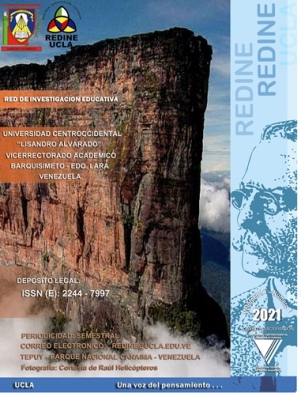Brushstrokes towards a democratization of virtual teaching
Keywords:
Democracy, Virtual Teaching, Knowledge Society, Postindustrial, TelecommutingAbstract
In a Post-industrial society, characterized by an economic foundation stemming from the dynamism of the market, where the generation of income is its premise, the democratization of thought is necessary, which will lead to the organization of man as a thinking being, generator of new ideas and executor of actions, to be catapulted into an intellectual evolution; It is then that we are in the presence of a Knowledge Society proper. Hence, this essay seeks to expose the nuances that would lead to new professions such as Virtual Teaching to the contribution of these new knowledge that every society requires, it is from this that, it starts from the ideological and political characteristics of post-industrial society, which They have given way to new forms of work, they have seen in Information and Communication Technologies (ICT) an important alloy for their execution, in this way the so-called Telework and Virtual Teaching are presented as part of these new disciplines.
Downloads
References
BELL, D. (1973). The Coming of the Post-Industrial Society. Primera Edición, ISBN:9780465012817. New York: Basic Books.
Coomaraswamy y otros (1914). Essays in Post-Industrialism: A Symposium of Prophecy Concerning the Future of Society. The Journal of Indian Art, 1886-1916; London Tomo 16, N.º 122-128, (Oct 1914): 99-128. Londres.
Jordy M. (2002). Digitofactura: flexibilización, internet y trabajadores del conocimiento. Comercio Exterior, ISSN: 1563-7352, Vol. 52, Nro. 6 Julio 2002. México. [disponible en] http://revistas.bancomext.gob.mx/rce/magazines/23/4/mich0602.pdf [consultado el 01-nov-2020].
Lapeyre, J. (2018). Orientaciones educativas TIC – ICT educational guidance. Lima, Perú. DOI: https://doi.org/10.13140/RG.2.1.3627.1602/1 . [consultado el 01-nov-2020].
Mella (2003). LA EDUCACIÓN EN LA SOCIEDAD DEL CONOCIMIENTO Y DEL RIESGO. Revista Enfoques Educacionales Vol.5 Nro. 1, (Pp.107–114), Año 2003. ISSN 0717-3229. Santiago de Chile. Chile. [disponible en] http://www.facso.uchile.cl/publicaciones/enfoques/07/docs/enfoques_07_2003.pdf . [consultado el 01-nov-2020].
Seoane, J. (1988). Movimientos Sociales y Acción Política, Sociedad Postindustrial y Formas de Participación Política. (Pp. 87-100). Universidad de País Vasco, España. [disponible en] https://www.uv.es/seoane/publicaciones/Seoane%201989%20Sociedad%20postinductrial%20y%20formas%20de%20participacion%20politica.pdf . consultado el 01-nov-2020].
Terán F. (2018). Sociedad del Conocimiento y la Economía. (Pp. 47-54). Revista San Gregorio, 2018, No.21, ENERO-MARZO (46-55), ISSN: 1390-7247; EISSN: 2528-7907. Ecuador.
Published
How to Cite
Issue
Section
Derechos del/de autor/es a partir del año de publicación
Esta obra está bajo la licencia:
Creative Commons Reconocimiento-NoComercial-CompartirIgual 4.0 Internacional (CC BY-NC-SA 4.0)
Las opiniones expresadas por los autores no necesariamente reflejan la postura del editor de la publicación ni de la UCLA. Se autoriza la reproducción total o parcial de los textos aquí publicados, siempre y cuando se cite la fuente completa y la dirección electrónica de esta revista. Los autores(as) tienen el derecho de utilizar sus artículos para cualquier propósito siempre y cuando se realice sin fines de lucro. Los autores(as) pueden publicar en internet o cualquier otro medio la versión final aprobada de su trabajo, luego que esta ha sido publicada en esta revista.




